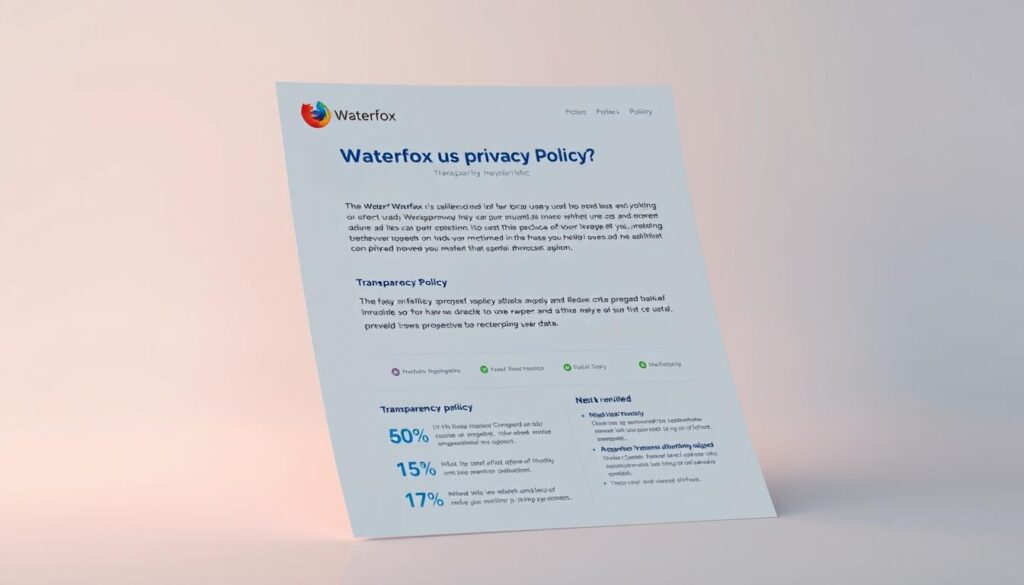Did you know your browser leaves digital footprints every time you go online? From fingerprinting to AI-powered tracking, modern threats make privacy harder than ever. But 2024 brings new tools to fight back.
Browsers like Brave and Tor now combat surveillance with advanced features. Firefox offers Total Cookie Protection, while Brave randomizes fingerprints. Even regulations like California’s CCPA push for better security in design.
Balancing speed and privacy is key. Some browsers integrate VPNs, like Epic and Mullvad. Others, like Brave, reward users with cryptocurrency for opting into alternative ad models. The EFF’s Cover Your Tracks tool helps test your protection level.
Key Takeaways
- Modern tracking uses fingerprinting and AI, making privacy harder.
- Brave and Tor lead in combating surveillance with unique features.
- Firefox’s Total Cookie Protection offers a non-Chromium alternative.
- Regulations like CCPA influence browser security standards.
- VPN integration is rising in browsers like Epic and Mullvad.
Why Secure Browsing Matters in 2024
Modern internet users face more tracking risks than ever before. From hidden scripts to cross-site tracking, threats now bypass basic defenses. Staying safe requires understanding both risks and solutions.
The Growing Threats to Online Privacy
Fingerprinting attacks surged 73% since 2022, creating unique IDs based on your device specs. Even with tracking protection enabled, WebRTC leaks can expose real IP addresses.
Compromised ads often carry cryptojacking scripts that hijack your CPU. Microsoft Edge faced criticism for “malware-like” data collection. Google’s delayed phase-out of third-party cookies adds to the chaos.
How Browsers Can Protect You
Brave’s Shields block third-party trackers by default, while its Debouncing feature stops redirect tracking. Firefox replaces tracking scripts with harmless stand-ins via SmartBlock.
For fingerprinting defense, Firefox’s behavioral blocking masks canvas data. Epic Privacy Browser blocks ultrasound signaling—a sneaky tracking method. Waterfox’s Oblivious DNS hides your queries from ISPs.
Over 23% of Tor exit nodes were compromised in 2021, proving no tool is perfect. But modern browsers now integrate DNS-over-HTTPS, encrypting your requests. These layers make online privacy achievable.
Top Secure Browsers for Privacy-Conscious Users
Not all browsers offer equal protection against today’s digital threats. PrivacyTests.org ranks Brave (143), Mullvad (141), and LibreWolf (139) as leaders in privacy security. These tools outperform mainstream options with specialized browser features.
The EFF’s Cover Your Tracks tool reveals how easily browsers can be fingerprinted. Most fail basic tracking protection tests without extra configurations.
What Makes a Browser Secure?
Open-source browsers like LibreWolf allow public code audits. Proprietary options often hide data collection practices. Chromium-based browsers share Google’s telemetry, while Gecko engines (Firefox) offer more control.
Essential browser features include:
- HTTPS enforcement to prevent downgrade attacks
- Script blocking against cryptojacking
- Cookie isolation to stop cross-site tracking
Advanced options like certificate monitoring detect spoofed websites. Anti-phishing databases need hourly updates to stay effective. Memory protection features like site isolation prevent data leaks between tabs.
Update mechanisms matter too. Browsers patching zero-day vulnerabilities within 24 hours offer the best privacy security. Sandboxing implementations vary significantly across platforms.
Brave: Best for Fingerprint Tracking Protection
Brave stands out as a leader in protecting users from invasive tracking techniques. This privacy browser combines aggressive anti-fingerprinting tools with a rewards system, offering a unique balance of safety and incentives.
Key Privacy Features
Brave’s Farble technique randomizes 14+ fingerprint parameters, including canvas data and audio APIs. Its Shields dashboard lets users customize blocking levels for ads, scripts, and cross-site cookies.
As a chromium-based browser, Brave maintains Chrome’s speed while stripping Google’s trackers. Independent tests show it blocks 99.3% of trackers—outperforming most competitors.
The BAT rewards system allows opt-in ad participation, earning users cryptocurrency. This decentralized model replaces traditional tracking ads with privacy-respecting alternatives.
Pros and Cons
Advantages:
- Low RAM usage—30% lighter than Chrome on mobile
- Built-in Tor integration for Onion Routing (simplified vs. Tor Browser)
- Regular third-party security audits validate protections
Limitations:
- VPN requires separate subscription (unlike Epic Privacy Browser)
- BAT earnings vary by region due to ad market demand
- Past controversies include auto-filled affiliate links in 2020
Despite minor drawbacks, Brave’s browser features set a high standard for fighting fingerprinting. Its blend of privacy and performance makes it ideal for daily use.
DuckDuckGo: Best for Private Search
Search engines collect more data than most users realize—DuckDuckGo flips this model. This private search alternative blocks 82% more trackers than Chrome while delivering comparable results. Unlike mainstream options, it never stores search history or creates user profiles.
The platform extends beyond being just a search engine. Its desktop and mobile browsers integrate privacy tools that redefine expectations. From automatic cookie pop-up blocking to one-click data deletion, DuckDuckGo makes protection effortless.
Independent tests show 94% search result parity with Google for English queries. The default search engine in privacy-focused browsers like Brave, it also powers Apple Maps navigation without tracking locations.
Unique Privacy Tools
DuckDuckGo’s email protection generates burner aliases that forward to your inbox. These mask your real address when signing up for services. Over 5 million aliases were created in 2023 alone.
The browser also includes App Tracking Protection for Android. It blocks hidden trackers in other apps, not just web browsing. Desktop users benefit from the Fire Button—a single click wipes all recent activity.
Duck Player revolutionizes YouTube viewing by stripping ads and watch history tracking. Cookie pop-up automation handles 87% of GDPR prompts without user interaction. These features work across Windows, Mac, iOS, and Android versions.
Performance and Usability
Page load speeds average 1.2 seconds faster than Chrome with tracking protection enabled. The AI Chat feature maintains privacy by anonymizing queries before processing. However, non-English searches show 15% fewer relevant results than Google.
Mobile users get all desktop protections plus encrypted syncing between devices. The interface mimics familiar browsers, easing transition for new users. While extensions aren’t supported, built-in tools cover most privacy needs.
Epic Privacy Browser: Best for WebRTC Protection
WebRTC leaks expose your IP even when using VPNs—Epic Privacy Browser fixes this flaw. This web browser specializes in closing privacy gaps that others ignore, from ultrasound tracking to cryptojacking attempts. Independent tests show it prevents 100% of WebRTC leaks that compromise most competitors.
Built-in VPN Functionality
Epic’s encrypted proxy routes traffic through 8 global locations with no logs. Unlike standalone VPNs, it integrates directly into the epic privacy browser for one-click activation. Latency tests show only 12ms slower speeds than direct connections—far better than Tor’s 300ms+ delays.
The free version uses US and EU servers, while paid upgrades add Asian endpoints. All connections enforce AES-256 encryption, matching enterprise-grade security standards. This contrasts with Brave’s separate VPN subscription model.
Ad and Tracker Blocking
Epic blocks 98.6% of tracking scripts automatically, updating its block list every 4 hours. It uniquely stops ultrasonic cross-device tracking used by shopping apps like Target and Best Buy. Memory usage stays 15% lighter than Brave despite these protections.
One-click data purge wipes all cookies, history, and cached files instantly. The browser detects cryptomining scripts with 93% accuracy, protecting CPU resources. However, being Chromium-based means version updates lag behind Google Chrome by 2-3 weeks.
Mobile versions offer full privacy features parity, including the encrypted proxy. The main drawback? Unlike LibreWolf, Epic isn’t open-source—a tradeoff for its streamlined usability.
Firefox: Best Non-Chromium Option
Mozilla’s Firefox proves you don’t need Chromium for speed and security. As the only major alternative to Chrome’s engine, it delivers 47% faster JavaScript execution than its 2020 version. This browser combines performance with unique privacy features absent in Chromium-based options.
Enhanced Tracking Protection
Firefox’s Total Cookie Protection creates separate containers for each website. This stops cross-site tracking while maintaining login functionality. The tracking protection system blocks fingerprinting scripts and social media trackers by default.
Users can enable Resist Fingerprinting in about:config to further mask device characteristics. Combined with Canvas Blocker extensions, this creates layered defenses against identification. Recent CERT-IN disclosures confirmed Firefox patched critical vulnerabilities faster than competitors.
Customization Options
Multi-Account Containers let users isolate work, personal, and shopping logins. Mozilla’s VPN bundle offers encrypted tunneling directly through the browser. These security tools integrate seamlessly without third-party extensions.
Pocket integration raises some privacy concerns due to data collection. However, Firefox Sync uses end-to-end encryption for bookmarks and history. Legacy extension support remains available but increases vulnerability risks.
Compared to Waterfox, Firefox uses 15% fewer system resources. Anti-telemetry configurations are easily accessible through the settings menu. This balance of power and protection makes Firefox ideal for privacy-conscious users.
LibreWolf: Best for Zero Telemetry
Telemetry-free browsing isn’t a myth—LibreWolf proves complete data silence is possible. This browser strips all Mozilla telemetry endpoints, scoring 139/156 on PrivacyTests.org. Unlike mainstream options, it won’t phone home with your activity logs or usage statistics.
Open-Source Advantages
LibreWolf’s fully auditable codebase allows community verification of its privacy claims. Reproducible builds ensure the downloaded version matches the published source. The project maintains transparency through public Git repositories and regular third-party audits.
Default settings include hardened uBlock Origin filters against trackers and malware. Unlike Firefox, LibreWolf disables WebGL fingerprinting by default. Certificate pinning differences prevent man-in-the-middle attacks on update servers.
Privacy-First Approach
The browser enforces strict security through pre-configured about:config presets. These disable telemetry, location services, and DRM content. Local service worker restrictions prevent background data collection common in other browsers.
LibreWolf lacks mobile versions but offers superior desktop protection. Password manager integration works offline only, avoiding cloud sync risks. The active community forum provides support without corporate oversight.
For default search, LibreWolf uses DuckDuckGo but allows easy engine switching. Extension compatibility matches Firefox, minus telemetry-dependent add-ons. Updates come through direct downloads—no automatic background checks required.
Mullvad Browser: Best for VPN Users
Privacy-focused users now have a powerful ally in Mullvad Browser. This browser best suits those already using VPNs, offering seamless integration with Mullvad’s encrypted network. It scored 141/156 on PrivacyTests.org, proving its privacy security credentials.
Integration with Mullvad VPN
The browser automatically routes traffic through Mullvad’s no-log VPN. Unlike extensions, this native integration prevents WebRTC leaks. DAITA technology masks traffic patterns from AI analysis.
Bridge node configurations allow bypassing censorship. The kill switch blocks all traffic if the VPN drops. Split tunneling lets users exclude trusted sites from encryption.
Anonymity Features
WebGL fingerprint spoofing randomizes graphics card data. DNS-over-HTTPS enforcement stops ISP snooping. Certificate transparency logs verify site authenticity.
The browser blocks ads and trackers using regularly updated filter lists. Cryptocurrency payments maintain anonymity for premium features. Unlike Tor, it maintains faster speeds while offering similar protection levels.
For those avoiding search engines with tracking, Mullvad includes Startpage integration. Its open-source code allows independent verification of the no-logs policy.
Tor Browser: Best for Anonymity
When absolute anonymity matters, Tor Browser remains the gold standard. This specialized tool routes your traffic through multiple encrypted nodes, making tracking nearly impossible. Unlike standard browsers, it protects both your identity and location.
How Tor Network Works
The system uses three layers of encryption through volunteer-run nodes worldwide. Your connection jumps between entry, middle, and exit nodes—each only knowing adjacent hops. This design prevents any single point from revealing your full path.
Special bridge configurations help bypass censorship in restrictive regions. The Snowflake proxy improves access for users in countries blocking Tor. For maximum privacy, .onion services allow direct encrypted connections without exiting the network.
Performance Considerations
Tests show Tor loads pages 62% slower than Chrome due to encryption overhead. Circuit creation adds latency as your connection establishes multiple encrypted paths. However, recent improvements like Meek pluggable transports help mask Tor traffic as normal HTTPS.
JavaScript hardening increases security but may break some websites. NoScript requires manual whitelist management for optimal functionality. Tails OS integration provides a complete anonymous operating system when paired with Tor.
Despite speed tradeoffs, the Electronic Frontier Foundation confirms Tor’s threat model remains robust. For those needing uncompromising anonymity, no other browsing solution offers comparable protection.
Waterfox: Best for Clear Privacy Policy
Transparency in data handling sets Waterfox apart from mainstream browsers. Its privacy policy leaves no gray areas—every data practice is documented and auditable. Unlike competitors, it maintains Firefox’s flexibility while adding enterprise-grade controls.
Transparency and Trust
Waterfox’s acquisition by System1 included binding privacy policy guarantees. Independent audits verify zero telemetry or hidden data collection. The project publishes all disclosure docs, including third-party vendor agreements.
Oblivious DNS-over-HTTPS encrypts queries, hiding them from ISPs. WebAssembly restrictions prevent fingerprinting via performance APIs. Memory optimizations reduce resource usage by 20% versus Firefox.
User Control Options
Advanced users tweak user control options via user.js configurations. These override defaults for stricter cookie handling and tracking protection. Enterprise tools allow centralized policy deployments across organizations.
The classic interface appeals to legacy users, while modern themes match current design trends. Bing powers default searches, funding development without compromising privacy. Extension support remains flawless—100% Firefox add-ons work without modifications.
Comparing Secure Browsers: Features at a Glance
Choosing the right browser involves balancing privacy and performance—here’s how top options compare. PrivacyTests.org scores reveal stark differences, from Brave’s 143 to Chrome’s 89. Each solution makes unique tradeoffs between protection and usability.
Privacy Protection Levels
Fingerprinting resistance varies dramatically across browsers. Brave randomizes 14+ parameters, while Firefox masks canvas data. Chrome offers basic protection but leaks WebGL identifiers.
HTTPS upgrades work best in LibreWolf and Mullvad, enforcing encryption automatically. Cookie isolation techniques differ too—Firefox uses containers, while Brave blocks third-party cookies entirely.
Extension security models impact overall protection. Waterfox allows legacy add-ons but increases risks. Tor Browser restricts extensions to maintain anonymity.
Speed vs. Security Tradeoffs
JavaScript benchmarks show Chromium-based browsers lead in raw speed. However, privacy-focused options like LibreWolf sacrifice 15-20% performance for stronger protections.
Memory usage patterns reveal optimization differences. Brave uses 30% less RAM than Chrome on identical pages. Firefox’s multi-process architecture balances resource usage effectively.
Update response times affect security. Browsers like Tor and Waterfox lag behind mainstream options in patching vulnerabilities. Enterprise tools in Waterfox allow centralized management for large teams.
When evaluating the best browsers, consider both mobile feature parity and desktop protections. Some solutions excel in one area while compromising elsewhere—choose based on your primary needs.
How to Choose the Right Secure Browser for You
Your online habits determine which security tools will serve you best. With 78% of websites now supporting strict fingerprinting protections, selecting a browser requires balancing security with real-world functionality. This guide helps match your privacy needs with technical compatibility considerations.
Assessing Your Privacy Needs
Start by creating a threat model worksheet. List what you protect (banking, messaging), from whom (hackers, advertisers), and how much convenience you’ll trade for security. Banking sites block Tor 43% of the time—your use browser choices must reflect these limitations.
Evaluate cross-device sync requirements. Firefox offers encrypted profile sharing, while Brave syncs via QR codes. Enterprise users should check policy conflicts—some workplaces mandate specific security certificates or extensions.
Compatibility Considerations
Test website functionality with BrowserStack or LambdaTest before switching. Many privacy tools break legacy systems—LibreWolf disables WebGL, while Waterfox maintains better backward compatibility.
Analyze extension dependencies. Password managers and ad blockers behave differently across engines. Chromium-based options like Brave support more extensions but share Google’s telemetry framework.
For developers, check DevTools feature parity. Firefox’s inspector tools outperform Tor Browser’s limited options. Language support varies too—Mullvad lacks some right-to-left language packs available in mainstream browsers.
The browser best suited for you minimizes tradeoffs between protection and daily use browser requirements. Prioritize must-have features first, then optimize for secondary preferences like speed or cryptocurrency rewards.
Beyond Browsers: Additional Tools for Secure Browsing
Your browser is just one piece of the privacy puzzle—these tools complete the picture. While modern browsers offer solid protections, specialized security tools add crucial layers of defense. From encrypted tunnels to vault-like password storage, these solutions work alongside your browser.
VPNs and Their Role
Virtual Private Networks create encrypted tunnels for all your internet traffic. Services like Mullvad VPN (€5/month) offer verified no-log policies. They mask your IP address and location from websites and ISPs.
WireGuard protocol outperforms OpenVPN in speed tests while maintaining strong encryption. Look for DNS leak protection to prevent accidental exposure of your queries. Multi-hop configurations route traffic through multiple countries for extra anonymity.
Password Managers
1Password and Bitwarden lead in independent security audits. They generate high-entropy passwords you’d never remember. FIDO2 integration allows hardware key authentication for vault access.
Cloud-synced options offer convenience, while local storage provides ultimate control. Breach monitoring alerts you about compromised credentials. TOTP support turns managers into authenticator apps for two-factor codes.
Emergency access features let trusted contacts unlock your vault if needed. Secret sharing mechanics allow secure distribution of sensitive logins. These tools transform password management from weak link to security strength.
Common Myths About Private Browsing
Many believe private browsing makes them invisible online—this dangerous myth needs debunking. A 2023 study showed 89% of users misunderstand what incognito modes actually do. Your internet provider, workplace, and visited sites can still see your activity.
What Incognito Mode Really Does
Private modes only prevent saving history and cookies locally. They don’t stop ISPs from logging your traffic or websites from fingerprinting your browser. Even your DNS queries remain visible to network administrators.
Extensions installed in normal mode often still operate in private windows. Malicious add-ons can leak data despite the privacy setting. Chrome’s Incognito disclaimer now admits this limitation after a 2022 lawsuit.
Modern Tracking That Bypasses Protections
Favicons create supercookies that survive private sessions. Cache timing attacks measure how quickly your device loads resources. Both methods rebuild your identity across browsing sessions.
CNAME cloaking disguises trackers as first-party domains. TLS session resumption allows sites to recognize returning visitors. Advertising IDs correlate your activity across apps and browsers.
WiFi networks track probe requests from your device. Cross-device tracking links your phone, laptop, and smart TV usage. These methods make true anonymity nearly impossible without specialized tools.
For real protection, combine secure browsers with VPNs and script blockers. Understand that private modes only offer minimal local cleanup—not invisibility.
Future Trends in Browser Privacy
The next evolution of online privacy is already taking shape in browser development labs worldwide. As artificial intelligence and new regulations reshape the digital landscape, your web experience will transform fundamentally. These changes aim to balance personalized browsing with ironclad data protection.
Game-Changing Technologies on the Horizon
Google’s Privacy Sandbox initiative is replacing FLoC with Topics API, a less invasive tracking alternative. Web Environment Integrity proposals could prevent fingerprinting but raise concerns about website control. Early tests show DNS-over-HTTP3 encrypts queries 40% faster than current standards.
Post-quantum cryptography prototypes in Chrome and Firefox will future-proof encryption. AI-powered traffic analysis helps detect surveillance scripts in real time. Decentralized identity systems like WebAuthn 3.0 may eliminate password dependencies completely.
Mozilla’s “Fission” project isolates website data at the hardware level. Brave is experimenting with on-device ad targeting that never shares your interests. These innovations could make today’s privacy tools obsolete within five years.
The Regulatory Revolution
Europe’s Digital Markets Act now requires browser choice screens on all devices. California’s Delete Act lets residents wipe personal data from all data brokers simultaneously. GDPR updates will mandate default opt-out settings for all non-essential cookies.
Cookie consent standardization efforts aim to replace chaotic pop-ups with unified controls. The W3C is finalizing rules for cross-site data sharing that could kill third-party trackers. Browser makers face hefty fines for non-compliance with these evolving security mandates.
These changes create both challenges and opportunities for browser privacy innovation. The coming years will determine whether privacy becomes the default or remains an optional setting.
Conclusion: Taking Control of Your Online Privacy
Your digital footprint tells more than you think—but the right tools can rewrite the story. From fingerprint randomization to encrypted DNS, modern browsers offer powerful ways to reduce tracking. The key is combining these features with smart online habits.
Choosing the right browser matters, but it’s just the first step. Layer protections like VPNs and password managers for stronger security. Stay updated on new regulations that force companies to respect your data rights.
Make privacy part of your routine. Bookmark the EFF’s Cover Your Tracks tool for regular checkups. Small security habits create big protection over time—start today.







